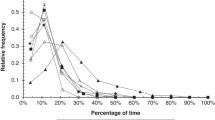Abstract
The constant pressure on the industrial workforce to successfully achieve projects’ scope within time, resources and budget constraints is constantly increasing because of the volatile market conditions worldwide. To palliate this issue, Project Management (PM) has been proposed as a suitable approach to cope with the varied sources of pressure. For instance, PM facilitates the control and tracking of multiple steps involved in delivering value to customers. However, to fully take advantage of a PM implementation in an organization, managers need hands-on experience to properly use PM principles in real-life situation. Nowadays, simulation-based training has become an affordable approach to provide novice project managers with situational-based learning they need during different stages in the career in PM. Unfortunately, little is known about the effectiveness of simulation as a training tool for new and current project managers. To fill the knowledge gap in how effective simulation has been to train project managers, this work presents the results of a systemic literature review study. A key finding of this work is a paucity in computer-based simulation approaches to train project managers, particularly in the agile paradigm.
Access this chapter
Tax calculation will be finalised at checkout
Purchases are for personal use only
Similar content being viewed by others
References
Ford, D. N., & Lyneis, J. M. (2020). System dynamics applied to project management: A survey, assessment, and directions for future research. https://doi.org/10.1007/978-1-4939-8790-0_658
Otsuki, M., Akiyoshi, M., & Samejima, M. (2017). Identification method of improvements in user operations on project manager skill-up simulator. IEEE Access, 5, 5811–5818. https://doi.org/10.1109/ACCESS.2017.2673019
Ching, P. M., & Mutuc, J. E. (2018). Modeling the dynamics of an Agile scrum team in the development of a single software project. In 2018 IEEE international conference on industrial engineering and engineering management (IEEM) (pp. 386–390). Bangkok: IEEE. https://doi.org/10.1109/IEEM.2018.8607430
Negrete-Rodriguez, M. A., Elizondo-Noriega, A., Guemes-Castorena, D., & Muñoz, M. (2023). A review of the state-of-the-art scientific methods used to evaluate the effectiveness of training approaches. In Proceedings of the American society of engineering management annual conference.
Tiruvengadam, N., Elizondo-Noriega, A., Gemes-Castorena, D., & Beruvides, M. G. (2022). Opportunities for system dynamics implementation in project management evaluation. In Portland international conference on management of engineering and technology (PICMET) (pp. 1–8). https://doi.org/10.23919/PICMET53225.2022.9882860
Shatte, A. B. R., Hutchinson, D. M., & Teague, S. J. (2019). Machine learning in mental health: A scoping review of methods and applications. Psychological Medicine, 49(9). https://doi.org/10.1017/S0033291719000151
Moher, D., Shamseer, L., & Clarke, M. (2015). Preferred reporting items for systematic review and meta-analysis protocols (PRISMA-P). Systematic Review, 4. https://doi.org/10.1186/2046-4053-4-1
Pahlevan, S., Saeed, M., Paolo, W., & Wijesinghe, S. N. R. (2019). Systematic reviews in Asia: Introducing the “PRISMA” protocol to tourism and hospitality scholars: current status and future directions.
Negrete, M., Elizondo-Noriega, A., Tiruvengadam, N., Muñoz, M., & Gúemes-Castorena, D. (2023). A literature review of simulation-based approaches to train managers in waterfall and agile project management. In 2023 Portland international conference on management of engineering and technology (PICMET), July (pp. 1–8). Monterrey, Mexico: IEEE. https://doi.org/10.23919/PICMET59654.2023.10216822
Muñoz, M., Negrete, M., & Mejía, J. (2019). Proposal to avoid issues in the DevOps implementation: A systematic literature review. In Rocha, Á., Adeli, H., Reis, L. P., & Costanzo, S. (Eds.), New knowledge in information systems and technologie. Advances in Intelligent Systems and Computing (Vol. 930, pp. 666–677). Springer International Publishing. https://doi.org/10.1007/978-3-030-16181-1_63
Arakelyan, E. K., Rubashkin, V. A., Andriushin, A. V., & Mezin, S. V. (2020). The use of modern computer-based training-simulator complexes in the educational process. In 2020 V international conference on information technologies in engineering education (Inforino) (pp. 1–4). Moscow, Russia: IEEE. https://doi.org/10.1109/Inforino48376.2020.9111772
Isoc, D., & Surubaru, T. (2020). Engineering education using professional activity simulators. In Auer, M. E. & Tsiatsos, T. (Eds.), The challenges of the digital transformation in education. Advances in Intelligent Systems and Computing (Vol. 916, pp. 520–531). Springer International Publishing. https://doi.org/10.1007/978-3-030-11932-4_50
Jääskä, E., & Aaltonen, K. (2022). Teachers’ experiences of using game-based learning methods in project management higher education. Project Leadership and Society, 3, 100041. https://doi.org/10.1016/j.plas.2022.100041
Elsawah, S., McLucas, A., & Mazanov, J. (2017). An empirical investigation into the learning effects of management flight simulators: A mental models approach. European Journal of Operational Research, 259(1), 262–272. https://doi.org/10.1016/j.ejor.2016.10.011
Khatib, M. E., Alhosani, A., Alhosani, I., Matrooshi, O. A., & Salami, M. (2022). Simulation in project and program management: Utilization, challenges and opportunities. AJIBM, 12(4), 731–749. https://doi.org/10.4236/ajibm.2022.124037
Shafieezadeh, M., Kalantar Hormozi, M., Hassannayebi, E., Ahmadi, L., Soleymani, M., & Gholizad, A. (2020). A system dynamics simulation model to evaluate project planning policies. International Journal of Modelling and Simulation, 40(3), 201–216. https://doi.org/10.1080/02286203.2019.1596779
Nasirzadeh, F., Khanzadi, M., & Mir, M. (2018). A hybrid simulation framework for modelling construction projects using agent-based modelling and system dynamics: An application to model construction workers’ safety behavior. International Journal of Construction Management, 18(2), 132–143. https://doi.org/10.1080/15623599.2017.1285485
Author information
Authors and Affiliations
Corresponding author
Editor information
Editors and Affiliations
Appendix A
Rights and permissions
Copyright information
© 2024 The Author(s), under exclusive license to Springer Nature Switzerland AG
About this chapter
Cite this chapter
Negrete-Rodriguez, M.A., Elizondo-Noriega, A., Muñoz, M., Güemes-Castorena, D. (2024). A Comparison of System Dynamics-Based Simulators for Project Management Training: A Literature Review. In: Mejía, J., Muñoz, M., Rocha, A., Hernández Pérez, Y., Avila-George, H. (eds) New Perspectives in Software Engineering. Studies in Computational Intelligence, vol 1135. Springer, Cham. https://doi.org/10.1007/978-3-031-50590-4_8
Download citation
DOI: https://doi.org/10.1007/978-3-031-50590-4_8
Published:
Publisher Name: Springer, Cham
Print ISBN: 978-3-031-50589-8
Online ISBN: 978-3-031-50590-4
eBook Packages: Intelligent Technologies and RoboticsIntelligent Technologies and Robotics (R0)




